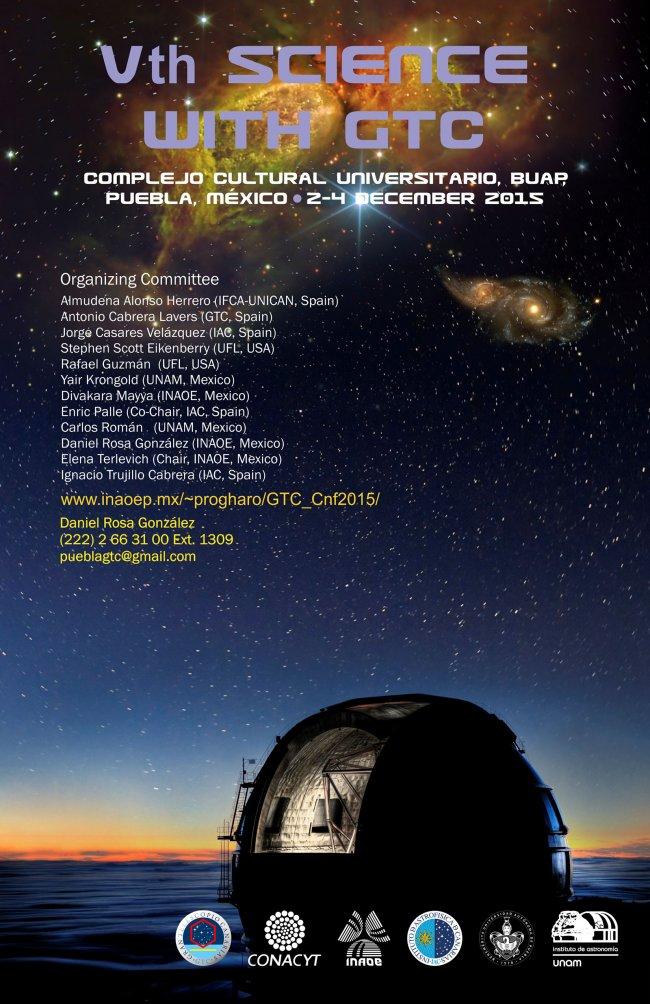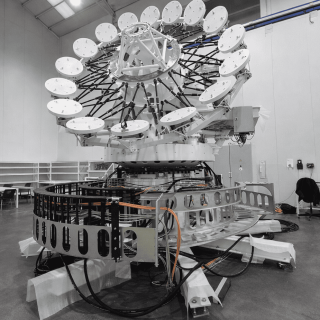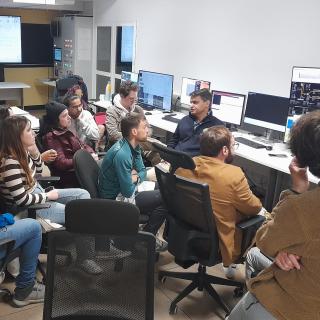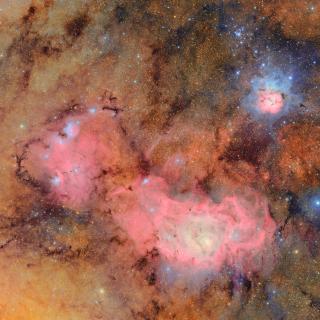A hundred scientists from some twenty international research centres will be meeting this week at the 5th International Conference on “Science with the Gran Telescopio Canarias (GTC)” to be held in Puebla (Mexico). The opening ceremony will be attended by José Alfonso Esparza Ortiz, Rector of the Benemérita Universidad de Puebla, Alberto Carramiñana, Director General of the INAOE (National Institute of Astrophysics, Optics and Electronics), and Elena Terlevich, astrophysicist of the INAOE and chair of the conference.
The Gran Telescopio CANARIAS (GTC) is an optical-infrared telescope with a segmented 10.4m at the Observatorio del Roque de los Muchachos (ORM) on the Island of La Palma (Canary Islands). It is one of the telescopes with the largest diameter and most advanced technology in the world in its category. In 2009 it started to produce science, and by now more than two hundred publications have been presented based on observations taken with this telescope, which is multifunctional and produces a range of types of spectra. Thanks to this it produces results in many fields of astrophysics.
The GTC has obtained outstanding results in the study of exoplanets, compact stellar objects (black holes and neutron stars), the interstellar medium, galaxies, gamma-ray bursts, asteroids, and supernovae. Recently it revealed the presence of an ultraluminous source in the spiral galaxy M81 which featured in an article in Nature (see More Information). This last discovery was made using “Director’s Time” a flexible part of the observing programmes which allows research which is considered of high interest by a panel of experts to be inserted at the last minute.
In its fifth edition, the meeting, which took place previously in Granada, Mexico City, Miami, and the Island of La Palma, will comprise two working days on astrophysics, and one day on technology. It is being organized by the Instituto Nacional de Astrofísica, Óptica y Electrónica in Mexico (INAOE) and the Instituto de Astronomía of the Universidad Nacional Autónoma de México (IA-UNAM). The Instituto de Astrofísica de Canarias (IAC), and the University of Florida (UF) are also participating.
The GTC is the result of an international collaboration which includes Spain (IAC), Mexico (IA-UNAM and INAOE), and the United States (UF).
More information
Website of the V International Conference “Science with GTC”
The GTC finds a mysterious microquasar in the galaxy M81
Press Contact
Annia Domènech
annia [at] iac.es (annia[at]iac[dot]es)



